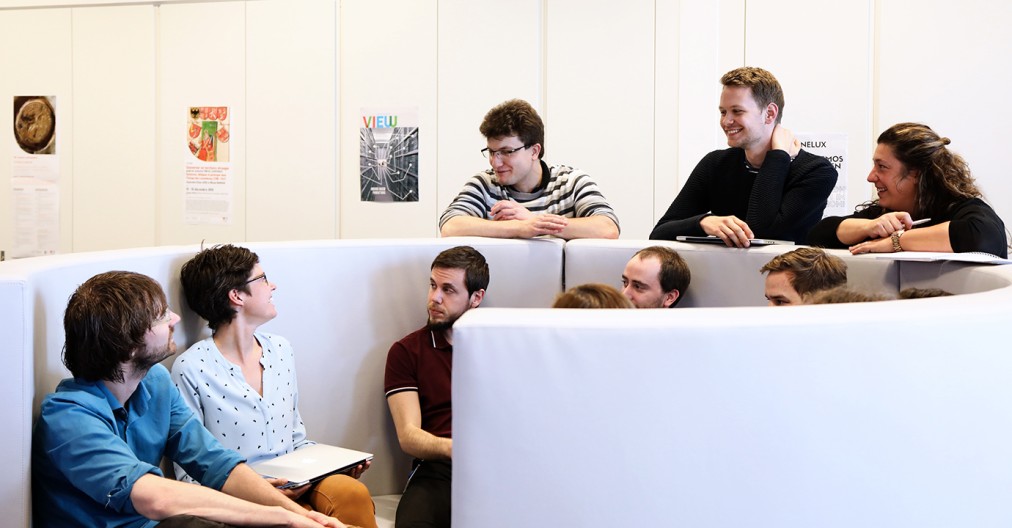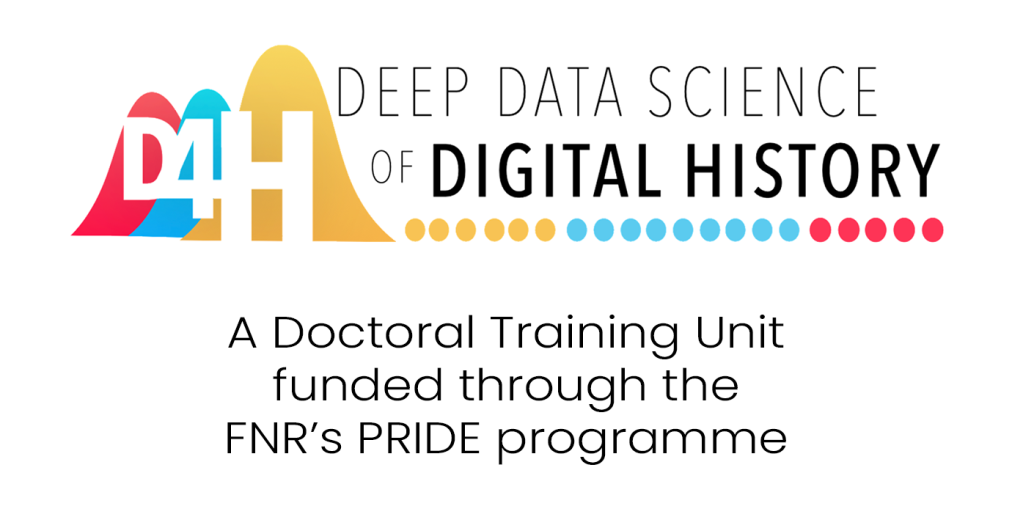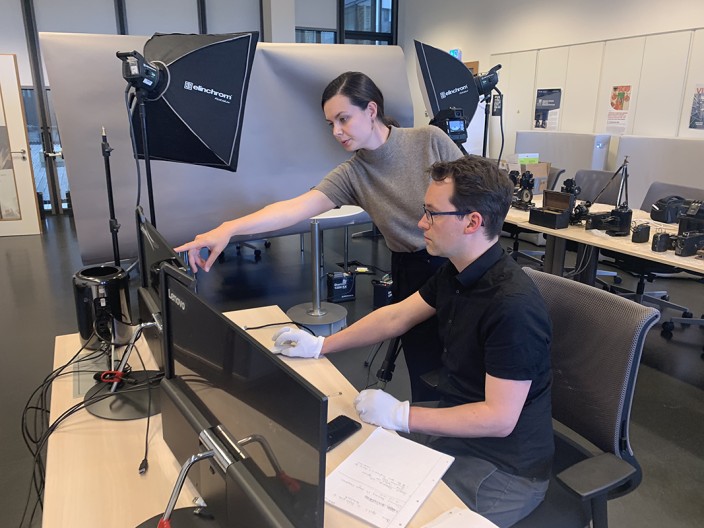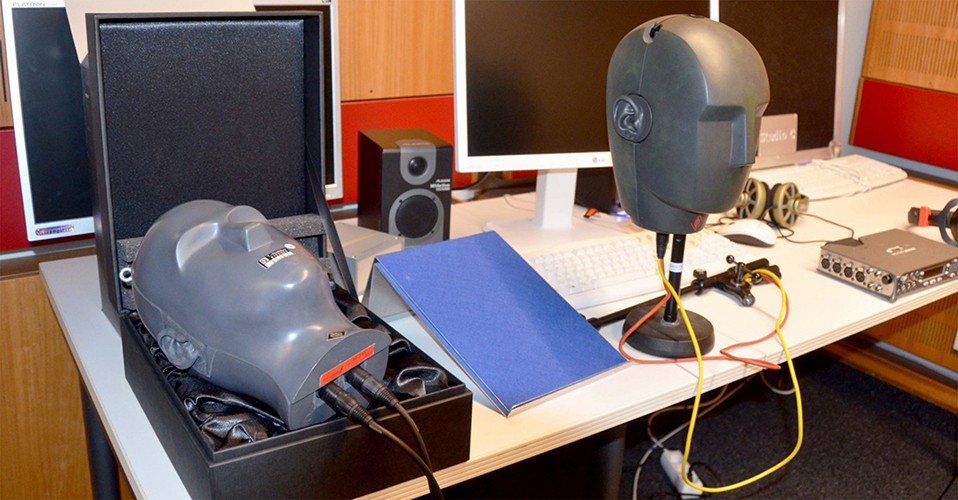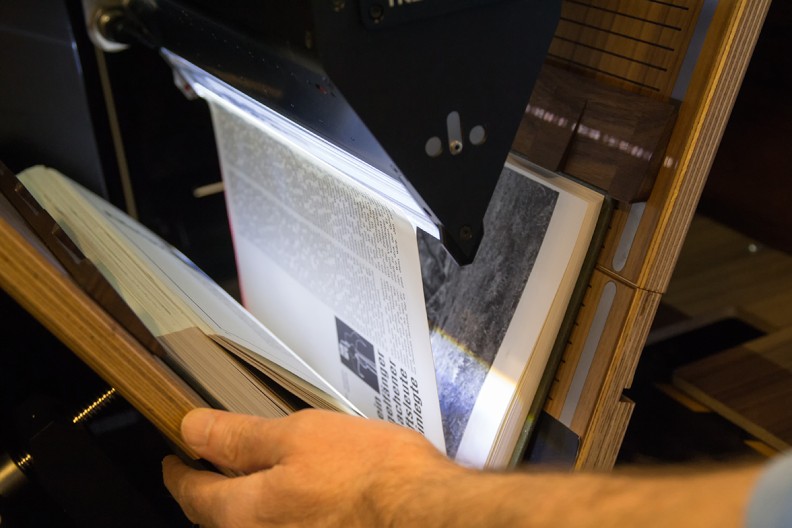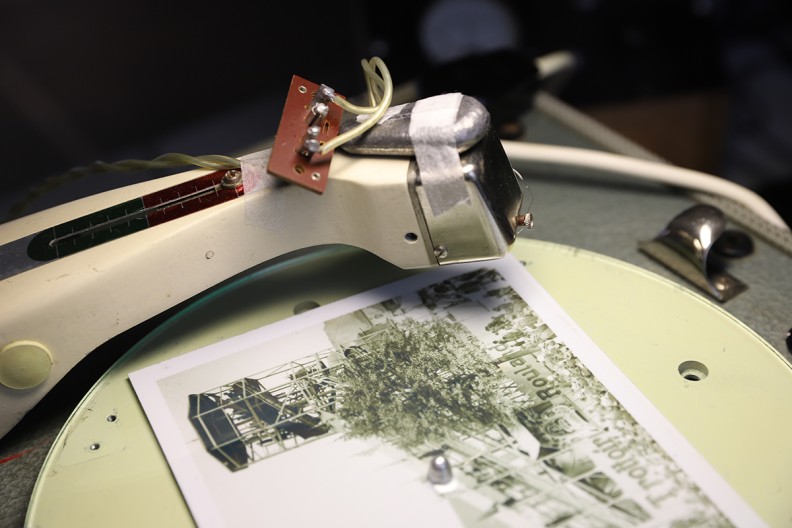The interdisciplinary and digital workflow of the C²DH is inspired by the concept of “thinkering” – a combination of the verbs “tinkering” and “thinking” that describes the action of playful experimentation with new digital methods and tools for the study, interpretation and narration of history. Experimentation is an integral part of C²DH’s research methodology. The idea is to promote a hands-on approach to new digital sources, tools and infrastructures for the practice of history while also critically assessing the impact of digital tools and technologies on historical research.
The C²DH Thinkering Grant promotes such experimental approaches within the centre by recognising innovative and high-risk research or outreach initiatives with the aim of fostering creative uncertainty and interdisciplinary cooperation among C²DH staff.
Doctoral Training Units
The C²DH’s teaching and knowledge transfer activities also build on the thinkering philosophy. The centre aims to be a place of fearless learning where students and young researchers have the opportunity to experiment and explore new paths in a secure academic environment. A great opportunity for promoting innovative and experimental research projects at PhD level is the Doctoral Training Unit (DTU) initiative within the FNR’s PRIDE scheme. Our first DTU on Digital History and Hermeneutics (DHH) was designed to serve as an experimental space in which different communities of practice and epistemic cultures – including historians, philosophers, linguists, computer scientists, geographers, information and data scientists and experts in human-computer interaction – could negotiate new forms of knowledge production in the field of digital history and humanities. From 2017 to 2021, the DTU hosted 13 PhD students from 10 different countries. In the coming years, the follow-up DTU, entitled “Deep Data Science for a Digital History” (D4H), will focus on the trading zone between history and data science. In collaboration with partner institutions such as LISER, LIST and the departments of history and computer science at the University, the DTU will focus on the question of how to make sense of “big data of the past”, since the practice of history in the “age of abundance” requires new approaches to data management, mining, visualisation and interpretation. The study of mass migration flows, climate change and public opinion formation on social media platforms will require both critical digital literacy from historians and a humanist approach to data analytics.
Learning by doing in the DH LAB
The DH Lab is the C²DH’s state-of-the-art digitisation facility, offering a unique space and professional equipment for hands-on “learning by doing” for both students and staff. The facilities include a seminar room equipped with a large video wall, high quality 2D digitisation equipment for various sources (photographs, microfilm, slides, letters, etc.), two automated scanners for the retro-digitisation of books, as well as 3D scanning and 3D printing equipment.
The C²DH also runs the Hands-on History lecture series, featuring presentations by international researchers in history and related disciplines who have found original and interesting ways to research, write, teach or publicise history and are willing to share their experiences. Driven by a praxeological interest in ways of doing history, the focus of the lecture series is to problematise practices rather than concepts or theories of history.



